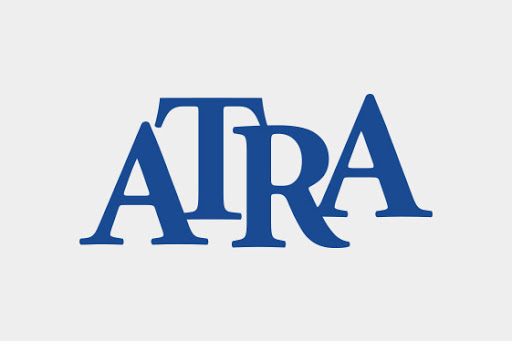
Supreme Court of Pennsylvania Defies SCOTUS Precedent
ATRA’s statement on the Supreme Court of Pennsylvania’s ruling in Hammons v. Ethicon to allow an out-of-state lawsuit to continue, openly defying SCOTUS precedent.
The Supreme Court of Pennsylvania openly defied U.S. Supreme Court precedent this week by allowing an Indiana resident to continue their case against a New Jersey-based company in Hammons v. Ethicon.
In the case before the Supreme Court of Pennsylvania, an Indiana resident claimed Ethicon, headquartered in New Jersey, made a defective pelvic mesh device. The plaintiff did not receive medical treatment in Pennsylvania, and all conduct relevant to the claim took place in Indiana or New Jersey. Regardless, the lower courts allowed the claim to proceed in Pennsylvania state courts, which led to a $12.8 million judgment in Philadelphia’s mass tort program.
The U.S. Supreme Court clearly held in Bristol-Myers Squibb (BMS) that a state cannot exercise personal jurisdiction over a company that is not incorporated or headquartered in that state, when the plaintiffs do not live in the state, and events related to the alleged injury did not occur there. It is notable that only Justice Sonia Sotomayor dissented in the case.
The American Tort Reform Association (ATRA) filed a brief urging the Pennsylvania Supreme Court to realign state law with U.S. Supreme Court precedent and end “litigation tourism.”
The court, however, went the opposite direction. It ruled that Ethicon’s connection to a company it contracted with, Secant, allowed Pennsylvania courts to assert jurisdiction over Ethicon.
The only connection between the parties and Pennsylvania was that Ethicon contracted with Secant, a Pennsylvania company, to “design, test, and manufacture” the mesh, and the plaintiffs’ lawyer decided Philadelphia would be a more favorable place to sue. However, conducting business with third parties does not automatically subject an out-of-state business to personal jurisdiction where that company is located unless there is a specific connection between the forum and the injury.
This was the state Supreme Court’s first opportunity to apply the U.S. Supreme Court’s ruling regarding out-of-state plaintiffs.
ATRA believes this ruling clearly fails to follow the majority ruling in Bristol-Myers Squibb, which sought to restrict out-of-state plaintiffs from suing in plaintiff-friendly jurisdictions.
Contrary to the holding in BMS, the Pennsylvania Supreme Court concluded that it was sufficient for a plaintiff to show a tie between the state and the “underlying controversy,” rather than the individual’s claim, for a state court to exercise proper jurisdiction in a case.
Oddly, the Pennsylvania Supreme Court appeared to follow Justice Sotomayor’s “forceful” dissent in BMS instead of the majority opinion. In fact, the Pennsylvania Supreme Court invited review of its decision, stating that “absent further clarification from the High Court, we decline to restrict jurisdiction by focusing narrowly on the elements of plaintiff’s specific legal claims.” Only the state’s chief justice refused to “join an opinion of a state court that does not abide by [the U.S. Supreme Court’s] latest pronouncement.”
The U.S. Supreme Court held in BMS that the “bare” decision to contract with a California company to distribute a drug nationally did not provide sufficient basis for jurisdiction in California. Similarly, Ethicon’s link to a Pennsylvania company should not have provided sufficient basis for a Pennsylvania court to decide the case.
A Judicial Hellhole
Philadelphia’s Court of Common Pleas was the No. 1 Judicial Hellhole in 2019 due in part to the court’s frequent failure to apply venue rules and allow forum-shopping. Judges in the Philadelphia Court of Common Pleas habitually swing open the courtroom doors to out-of-state plaintiffs. This policy benefits plaintiffs but negatively impacts Pennsylvanians. It clogs courts, drains court resources, and drives businesses out of the state leading to job loss. The Hammons decision reinforces the actions by the lower court and allows forum shopping to continue. It further cements Philadelphia’s position atop the list and makes it a near certainty the regrettable distinction will extend to the state’s Supreme Court when the 2020 rankings come out in December.
Want more updates on civil justice reform? Sign up for ATRA’s occasional email updates.
Latest News
View all news
‘Highly Unusual’ Rehearing of Louisiana Case Raises Judicial Independence Concerns
Louisiana Supreme Court Waffles Under Political Pressure, ATRA Brief Urges Court to Stand Strong
America’s Top 9 Worst Judicial Hellholes®
Left unchecked, these jurisdictions will continue dragging down economic growth and undermining justice through rampant lawsuit abuse.
ATRA Commends J&J’s Plan to Resolve Notorious Talc Lawsuits
Claimants Given Opportunity to Vote on Plan; Judge to Reconsider Scientific Validity of Plaintiffs’ Experts
The Lab Whose Junk Science Is Fueling a Frenzy of Litigation
Legitimate consumer protection demands sound science and impartial analysis — not distorted data designed to manufacture lawsuits.
Lawsuit Advertising Frenzy Fuels Georgia’s Litigation Epidemic
Law Firms Spent $168M+ on 2.2M Ads in Georgia
Trial Lawyers’ Dual Grip on Pennsylvania Politics and Public Opinion Revealed in New ATRA Reports
ATRA’s Latest Studies Reveal Financial Influence and Lack of Transparency in Pennsylvania’s Campaign Finance Systems



